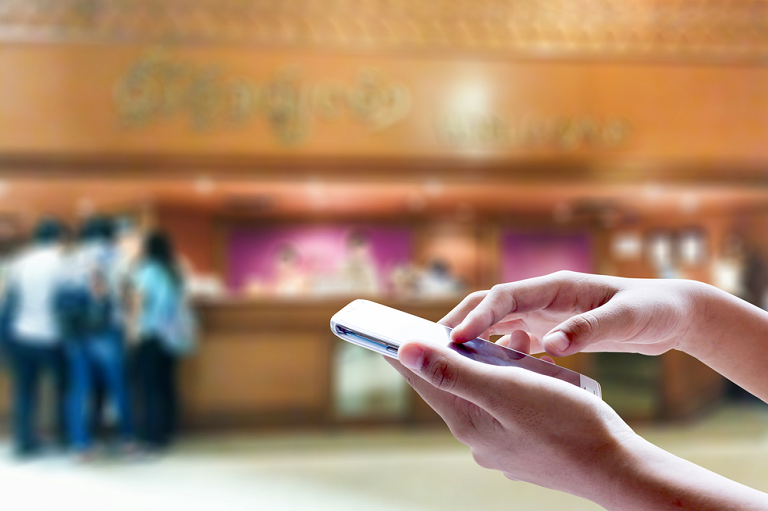Narender Yadav / November 21, 2018

It is no longer news that IoT is impacting the way we do business now. It is estimated that there will be around 20.4 connected devices by 2020 and McKinsey estimates that the potential economic impact could vary from $4 trillion to $11 trillion by 2025.
With such widespread adoption of IoT, it would be extremely difficult for any sector to escape its impact. The hospitality industry is no exception Reports are that the hospitality industry ranks among the top three industries along with manufacturing and banking as far as IoT spend is concerned.
The most common use cases are system controls, remote monitoring, humidity and motion detection, surveillance, monitoring food preparation, smart lighting, and smart refrigeration. But the opportunity to reap IoT’s benefits in the hospitality sector is even bigger.
A cursory glance at a hotel today will reveal that a standard room could consist of several IoT-enabled devices like air sensors, blinds, voice assistants, motion sensors, thermostat, and smart TVs, to name a few. The guest too may bring in a couple of devices of his own like the laptop, smartwatch, smartphone etc. Moreover, the hotel backend will consist of Boilers, CCTVs, pumps, chillers, fire alarms, and various control systems
Leveraging the power of these devices and the potential connectedness could open up possibilities hitherto unknown to streamline operations and improve the customer experience.
Sensor data provides many insights into customer behavior and these inferences can help the industry provide better-contextualized experiences to their guests. Virgin Hotel, for example, has developed an App that enables their customers to interact with their room’s thermostat, making it possible to set the temperature to one’s specific comfort level even before stepping into the room.
Using the app, the guest can also control other smart devices in the room like the TV. Hilton has also deployed IoT enabled doors in 1700 of its hotels.
The hotel staff too can be benefited by implementing IoT-driven solutions. Sensor data can alert the hotel staff if there is a more than the regular use of any utility by pointing out the anomaly. In short, IoT data can help the hotels bring in operational efficiency along with enhanced customer experience to make the business grow “smart” ly.
The Automation of the Hotel room services is the first benefit of IoT adoption in hospitality. This includes managing the electrical controls, like the lights, from anywhere or switching on the TV and navigating to the correct channel as well as controlling the thermostat.
These technologies will bring the experience of a guest as close as possible to the smart home he may well be residing in. Hotels are also bringing the daylight harvesting concept into play by adjusting the brightness of the LEDs in tune with the available natural light. This helps in energy and cost-savings for the organization.
Read More: 9 Real World Examples of Successful IoT Applications
IoT-enabled devices can also help make the entire check-in and entry into the room process remarkably smooth. There are examples where IoT-driven solutions can help the guest conduct this entire process without having to interact with any hotel staff. This is fast and cool too!
We have seen that a hotel will have a variety of equipment and types of machinery performing various functions. Be it the centralized AC-plant or a chiller or boiler in the utility room, their readings can be monitored through sensors.
Looming failure can be preempted and prevented. IoT is enabling predictive maintenance in the Hospitality sector to help increase the life of the equipment, ensure more uptime, and reduced cost of catastrophic failure.
Today’s travelers, irrespective of their age, will carry their smartphone with them. Hence guest engagement via apps and smart devices have become possible, even mandatory, for the hotels.
Most of the big hotel brands have their own app to get a customer 360 view. Furthermore, hotels like Hilton and Starwood are enabling mobile check-ins for travelers even as soon as they land at the airport.
The logical next step after mobile engagement is high customization. As we saw, most of the hotel giants have a mobile app to get a 360-degree view of their customers. This enables them to know what their customer preferences are.
The interaction and the feedback that they get helps them in providing near-bespoke services. Moreover, they can target their advertisements and promotional campaigns much better based on this information.
By getting to know their guests the hotels can cater to them better. For example, if Extended Stay America knows that a particular guest likes a particular set of configurations in a room or a room with a particular view, then they can take care to provide that to the guest as far as is practically possible. This goes a long way in enhancing the customer experience and gaining loyalty.
Read More: IoT is All Around – Including Our Workplace
Hotels and hospitality service provider can also provide other value-added services like location-based suggestions. For example, if a person has traveled to a location for the first time and is at a loss to understand where one should go for dinner or which places to visit nearby then the hotel, from the customer data available to them, can suggest or even create an itinerary for that customer.
Of course, there are some pitfalls that should be avoided. Enhancing the network security to insulate the IoT system of a hotel from cyber-attacks is of extreme importance.
We have been featured as Top CRM Software Development Company on
Designing and implementing a system for collecting and processing the data is a critical factor without which the whole endeavor will fall apart. And last, but not the least, one cannot stress enough on the crucial role of the leadership involvement and the correct use-case identification will play in the success of IoT initiative. But that care taken, this is a sector that can reap immense benefits from the IoT wave.





One Reply to “A Welcome Guest – The Growing Influence of IoT in the Hospitality Sector”
Comments are closed.